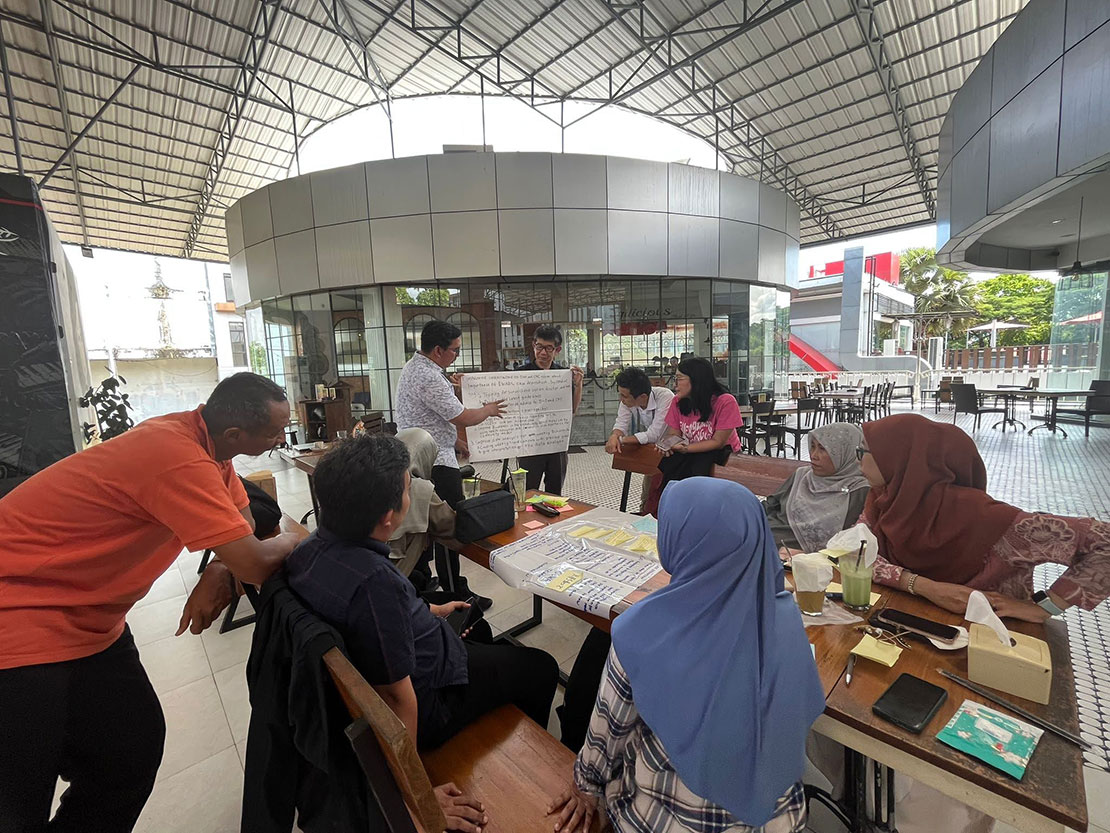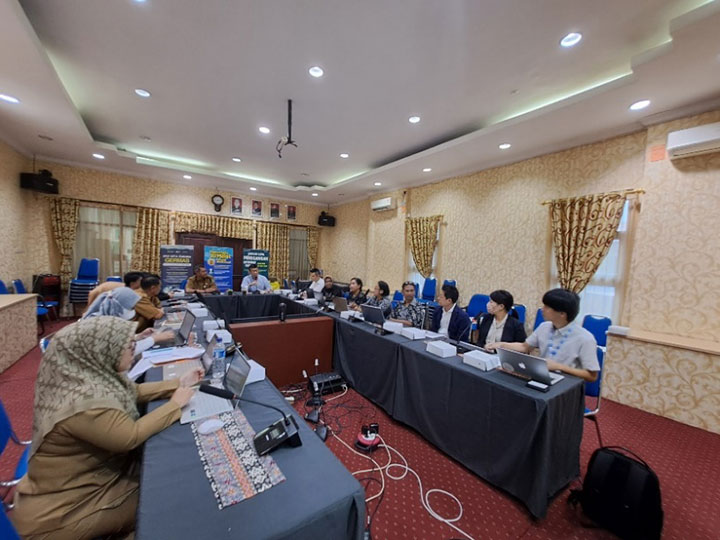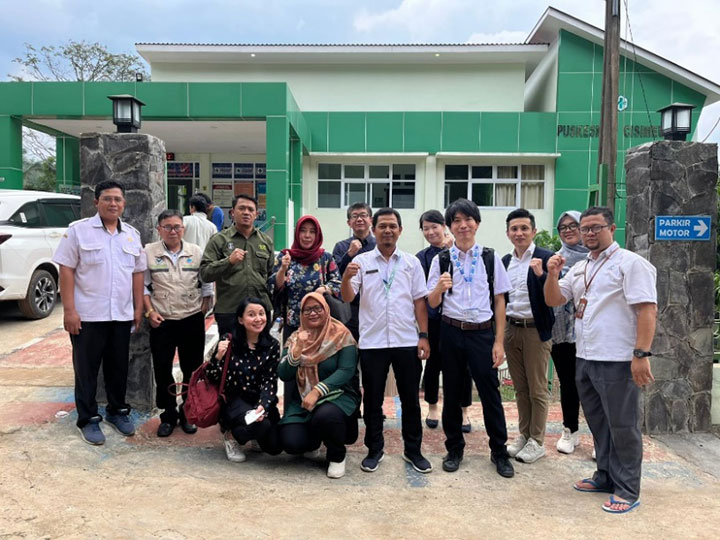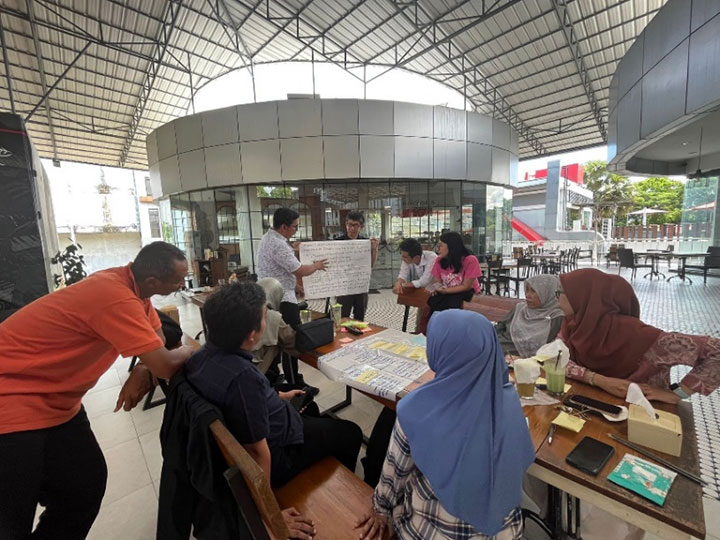Project news 10 : Evaluation of existing early warning and response surveillance systems in the three provinces targeted by the project

The JICA Early Warning Alert and Response System (EWARS) project, in collaboration with the Indonesian Ministry of Health (MOH), invited experts from the Field Epidemiology Training Program (FETP) in Japan and FETP in Indonesia to conduct surveillance system evaluation on the EWARS or Sistem Kewaspadaan Dini dan Respon (SKDR) in the three project-target provinces, East Kalimantan, Banten, and South Sulawesi. The evaluation activities took place over six weeks (two weeks for each province) from November 6 to December 15, 2023, to assess how efficiently and effectively the surveillance and response system works in the Indonesian context. On December 15, the results were presented at the online seminar with more than 70 participants from the MOH, Provincial Health Office (PHO), District Health Office (DHO), Puskesmas(Community Health Center), and FETP in Indonesia, and other relevant stakeholders (e.g., WHO, USCDC, NIID, and NCGM).
The surveillance system evaluation covered six districts and 12 Puskesmas ( Balikpapan City, Penajam Paser Utara District, Tangerang City, Lebak District, Maros District, and Gowa District) in the three provinces, involving in the joint team of MOH officials, FETP Indonesia, FETP Japan, and JICA EWARS project. Delegates from FETP Indonesia came from six Universities (UI, UGM, UNAIR, UDAYANA, UNHAS, and UNDIP). In each province, we visited one PHO, two DHOs, and four Puskesmas, interviewing officials in charge of decision-making, Surveillance/EWARS, specific programs (e.g., dengue, measles, immunization, and Vaccine Preventable Diseases (VPDs)), and laboratories. Among 24 diseases targeted by EWARS, dengue and measles were selected based on their public health importance. Dengue is a potential threat to massive outbreaks with a high disease burden, and measles is one of the VPDs aiming at eliminating from Indonesia. Then, we evaluated them with quantitative and qualitative mixed methods following the USCDC guidelines and using semi-structured questionnaires, which FETP Indonesia and Japan collaboratively developed.
As a result, the evaluation team found some good aspects and challenges in the EWARS. For instance, all provinces showed high performance beyond the target value regarding three indicators (i.e., completeness, timeliness, and response rate) defined by the EWARS guidelines. Moreover, good communication between officers in Puskesmas and DHO for the rapid response (e.g., timely consultation and information sharing) was observed. On the other hand, a shortage of human resources with high turnover rates, limited involvement in the EWARS of hospitals and clinics, and limited availability of guidance documents have been challenges to be improved. Regarding dengue, EWARS reports are likely to effectively capture and monitor the trend in dengue at a provincial level. However, underreporting situations were also observed due to misunderstanding the reporting criteria. It indicates that creating the same understanding of the EWARS concept and procedures among surveillance officers, polyclinic doctors, and laboratory staff is essential in improving the quality of the EWARS. As for measles, the current EWARS system is likely to lead to an early response to suspected measles cases, and most of the response activities have been completed in a timely manner. However, quality improvement in epidemiological investigations and situation reports should be expected. These findings were shared among all stakeholders at the meeting, and we finished it with collaborative recommendations as closing remarks.

Explanation of Surveillance Evaluation and request for cooperation at East Kalimantan Provincial Health Office.

Interviews with the director and surveillance personnel at the Cisimeut Community Health Center in the Lebak District, Banten Province.

Workshop among survey members on their challenges after the interviews in South Sulawesi Province.
